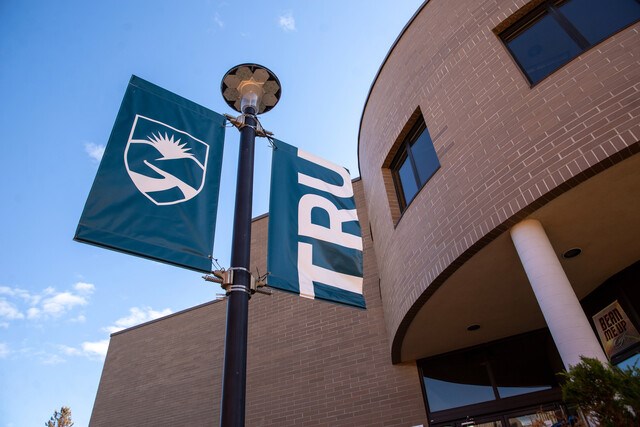Thompson Rivers University is bracing for impact, putting an indefinite pause on hiring and scaling back capital projects to the tune of $5 million amid a dramatic decline in revenue from international students.
Following an announcement in January that the number of international student permits would be cut by 35 percent across Canada and capped for two years, TRU saw its international enrolment drop to 4,300 this fall — a decrease of about 400 students compared to the same time last year.
Speaking with Castanet Kamloops, TRU Vice-President of Finance and Administration Matt Milovick said the university has about 75 positions posted today that won’t be filled due to the freeze.
He said about $5 million has been shaved off internal capital projects, as well.
“We just want to make sure that we have appropriate reserves in case things get really bad,” Milovick said.
Budget plan still developing
He said the university is planning to see a 50 per cent loss in incoming undergraduate international students and 75 per cent in post-baccalaureate students by January.
“It will have a dramatic effect on next year's budget, as well as probably the next couple of years thereafter if things don't change," Milovick said.
“We were fairly confident in March that we were kind of at the end of the policy changes. We weren't right, policy changes continue to happen."
While TRU is currently budgeted for a $5.5 million surplus in the first quarter of its 2024-25 financial forecast, the cap is expected to hit the university’s bottom line in January when it will see international headcount drop again.
International students at TRU pay approximately $19,000 in first-year tuition, compared to $4,487 for domestic students. The university has budgeted for $91 million in international tuition for the 2024-25 school year — representing 30 per cent of an anticipated $309.7 million in revenue.
Milovick said budget managers at the university are “cognizant of the situation” and the university’s strategy to balance its 2025-26 budget, that has been in the works since last winter, is still being developed and is “starting to take shape.”
Waiting on results
He said TRU is waiting on its second quarter financial results, noting next year’s budget is always based on what those results show.
“We know that there's going to be a reduction, we're just trying to figure out what the absolute number is and what the percentage is,” he said.
“The thinking is it's not going to be across the board, that there will be strategic cuts.”
He said the majority of the cuts will likely be enrolment dependent in the first year, but noted some operations are leaner than others and the university will have to “look at the whole piece.”
“Where we have had high levels of enrolment and now we have lower levels of enrolment, well, clearly that work doesn't exist anymore. The cost should follow the fact that there is no work,” he said.
Projects still moving forward
TRU implemented a partial hiring freeze and paused work on its Indigenous Education Centre and Low-Carbon District Energy System earlier this year following the announcement from Ottawa. Both projects have since broken ground.
“Both those projects are going ahead," Milovick said. "We have the money to do them both, so they are not at risk."
Milovick said investments are still being made in areas showing growth, like the groundbreaking TRU Wildfire initiative, which could see new courses launch as early as 2025.
He said he thought the measures were a good start.
“I think we're going to be talking about this a lot more over the next little while,” he said.

